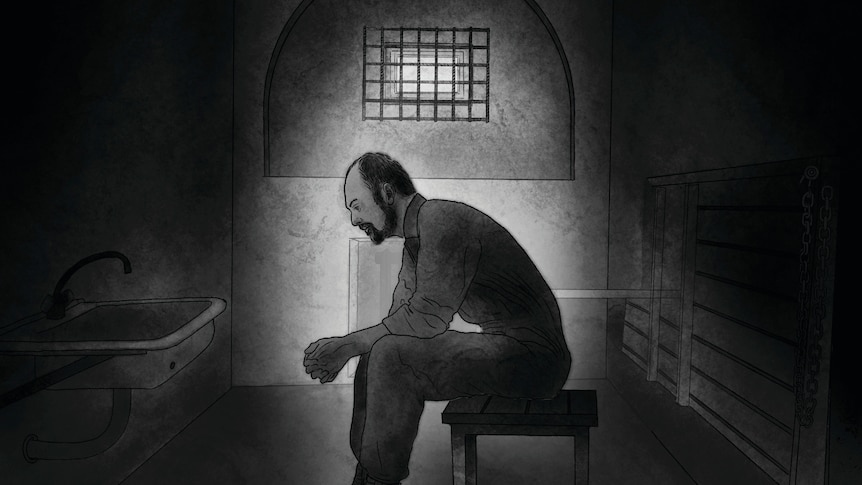A toothbrush and a mug — these items symbolize the only personal belongings permitted to Vladimir Kara-Murza during his time at one of Russia’s most severe penal colonies. The 42-year-old activist from Russia’s opposition is currently enduring a 25-year sentence at the Siberian IK-6 prison for alleged treason due to his vocal opposition to the Ukrainian conflict.
Situated around 250 kilometers east of Moscow, the Siberian IK-6 facility exposes Kara-Murza to extreme cold, with temperatures plummeting to as low as 20 degrees below zero. Confined within a stark concrete cell containing just a fold-out cot, stool, and sink, Kara-Murza was surprised when authorities unexpectedly provided him with a small cabinet. His wife, Yevgenia, recalls an incident where he was directed to collect his bedding from across the corridor, a task made difficult by the rule requiring prisoners to keep their hands behind their backs while outside their cells. This minor infraction led to disciplinary action when a guard observed Kara-Murza using his hands to handle the sheets.
These narratives shed light on the strict surveillance measures in place to monitor and suppress the growing number of Russian dissidents caught in President Vladimir Putin’s crackdown on political opposition.
Extended periods of isolation in “punishment cells” are a harsh reality for many detainees, with minimal contact with the outside world limited to lawyer visits or the slow delivery of letters. Reports indicate that inmates endure various forms of mistreatment, including sleep deprivation, inadequate food, medical neglect, and a labyrinth of arbitrary rules aimed at inflicting mental and physical stress.
In the aftermath of a recent incident at an Arctic penal colony under mysterious circumstances, human rights advocates warn of escalating risks faced by political prisoners like Kara-Murza within the Russian prison system. Grigory Vaypan, a lawyer affiliated with the prominent Russian human rights organization Memorial, highlights the pervasive atmosphere of insecurity within the Russian penitentiary system, particularly emphasizing the added challenges encountered by political detainees in their struggle to undermine their resilience and further isolate them from society.
While the late opposition leader Alexei Navalny has garnered significant public attention, Memorial reports that approximately 680 individuals are languishing in Russia’s extensive network of penal colonies solely for political reasons. Often branded as “prisoners of conscience,” these individuals are confined in facilities with stringent controls reminiscent of the Soviet-era gulags.
The living conditions in these colonies, characterized by overcrowded barracks and demanding labor requirements, mirror a system akin to contemporary slavery. Inmates are typically assigned menial tasks such as sewing uniforms or construction work, receiving minimal compensation well below the minimum wage. Mealtimes consist of basic, unpalatable food, with limited access to essential items like fruits and vegetables.
Furthermore, inmates are subjected to a rigorous regimen of chores and responsibilities, including standing at attention and adhering to strict cleaning schedules. The story of Andrei Pivovarov, serving a four-year sentence for his involvement in a banned political group, underscores the arduous nature of these tasks and the punitive measures for any violations.
In a scathing report from 2021, the US State Department highlighted the severe and life-threatening conditions prevalent in Russian prisons and detention centers. The report pointed out issues such as overcrowding, abuse by both guards and fellow inmates, inadequate healthcare, food shortages, and unsanitary facilities as common grievances among detainees.
Given the dire circumstances within these penal colonies, concerns regarding the well-being of inmates like Kara-Murza and Gorinov are escalating. Kara-Murza’s health has significantly deteriorated since his transfer to solitary confinement, exacerbating pre-existing health problems. Similarly, Gorinov, serving a seven-year sentence for his anti-war stance, confronts worsening health conditions due to his time in isolation.
The plight of these individuals underscores the pressing need for international attention and advocacy to address the systemic challenges and human rights violations within the Russian prison system. As public scrutiny mounts, the fate of political detainees remains precarious, with the looming threat of further deterioration.
ABC/wires
